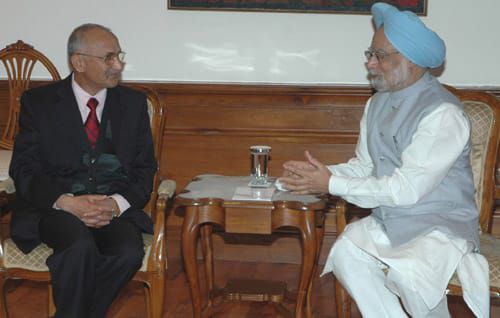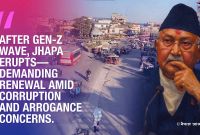India Mourns the Loss of Dr. Manmohan Singh; Nepal’s Absence Sparks Diplomatic Debate

India lost one of its most distinguished leaders as former Prime Minister Dr. Manmohan Singh passed away on December 28, 2024, at the age of 91. Known for his economic reforms and diplomatic acumen, Dr. Singh’s death has left a significant void in the political and intellectual landscape of India.
In a gesture of solidarity, Bhutan's King Jigme Khesar Namgyel Wangchuck paid a visit to India on December 29, 2024, to personally convey his condolences to the Indian leadership and the people. However, the absence of Nepal’s Prime Minister KP Sharma Oli at this critical moment has raised questions about Nepal’s approach to maintaining regional diplomacy.
Nepal’s Absence at a Diplomatic Opportunity
Prime Minister Oli did not visit India to express condolences, breaking from the unspoken tradition where leaders attend such events without formal invitations. This decision has drawn criticism, as many view such moments as an opportunity to reinforce diplomatic ties.
Observers note that leaders often attend high-profile funerals or condolence meetings to demonstrate solidarity and maintain strong regional ties, even without a formal invitation. Nepal’s absence, particularly when Bhutan’s monarch deemed it significant enough to visit, stands out.
Past Context of Diplomatic Strains
Nepal's current government, led by Prime Minister Oli, has faced diplomatic challenges with India. Notably, Oli's administration has expressed interest in an official visit to India to strengthen bilateral relations, but no invitation has been extended by New Delhi. This has fueled perceptions of a strained relationship between the two neighbors.
Experts argue that this could have been an opportune moment for Oli to visit India uninvited, both to pay homage to Dr. Singh and to open informal channels for dialogue with Indian leaders. Such a move would have echoed Oli’s earlier call for better ties and demonstrated Nepal’s willingness to engage constructively with India.
Reactions from Diplomats and Public
Diplomatic analysts in Kathmandu view Oli’s absence as a missed opportunity. "In South Asia, personal gestures often outweigh official protocols. The Prime Minister could have attended the ceremony to underline Nepal’s respect for Indian leadership and foster goodwill," remarked a former Nepali ambassador to India.
Social media users in Nepal have also voiced their disappointment, with many emphasizing the need for proactive diplomatic engagement.
Tributes to Dr. Manmohan Singh
Across the globe, tributes have poured in for Dr. Manmohan Singh, celebrated for steering India’s liberalization reforms in 1991 and fostering India’s global image as a growing economic power. His tenure as Prime Minister from 2004 to 2014 saw transformative changes in India’s policies, including landmark Indo-US agreements and progress in regional diplomacy.
Indian leaders and citizens mourn his passing, with a state funeral planned for December 30, 2024, in New Delhi. Leaders from around the world, including Bhutan’s King, have expressed their respects in person, showcasing Dr. Singh’s wide-reaching influence.
Conclusion
The absence of Nepal’s Prime Minister at Dr. Manmohan Singh’s condolence event has underscored ongoing challenges in Nepal-India relations. While Bhutan seized the moment to reaffirm ties with India, Nepal's leadership opted for a more passive approach. This event serves as a reminder that diplomacy often hinges on timely gestures, especially in South Asia’s intricate geopolitical framework.




![From Kathmandu to the World: How Excel Students Are Winning Big [Admission Open]](https://nepalaaja.com/img/70194/medium/excel-college-info-eng-nep-2342.jpg)
